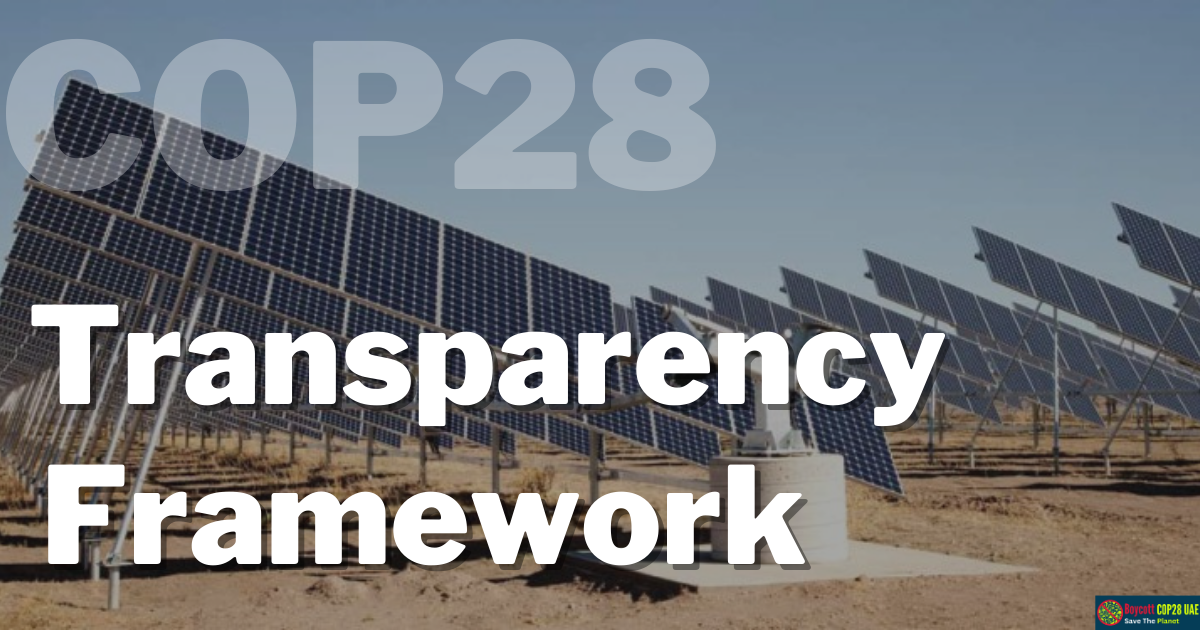The Paris Agreement, a landmark international treaty, aims to tackle the acute complication of climate change. It empowers countries to take action in order to limit global average temperature increases to as close to 1.5C as possible above pre-industrial levels, enhance climate resilience, and align financial flows with these objectives. One crucial aspect of the Paris Agreement is that countries must regularly report transparent information on the implementation and achievement of their national objectives. This reporting provides a snapshot of global progress toward the agreement’s goals and enables a global assessment of collective efforts.
The Importance of Transparency
Transparency is key to building trust and confidence among countries. When countries report on their climate actions and support, it helps create a better understanding of current efforts and the level of support needed and provided. Furthermore, the reporting information undergoes a peer assessment process, which fosters mutual learning and knowledge sharing among countries. This enables them to exchange achievements, best practices, and experiences, leading to more effective climate action.
The Enhanced Transparency Framework (ETF)
Under the enhanced transparency framework (ETF), which will be implemented by all countries that have ratified the Paris Agreement starting in 2024, a universal transparency process will be followed. This framework aims to clearly understand climate change actions and support and contribute to the global stocktake process. The global stocktake periodically assesses the overall progress of the Paris Agreement’s implementation.
Scope of The ETF
It covers all the objectives of the Paris Agreement, including tracking progress in implementing and achieving nationally determined contributions (NDCs). NDCs are the commitments made by each country to lessen greenhouse gas emissions and adapt to the impacts of climate change. Including NDCs in the transparency framework ensures that countries are accountable for their climate actions and that progress can be monitored effectively.
Universal Applicability With Flexibility
The requirements for reporting, technical expert review, and facilitative multilateral consideration of progress (FMCP) are universally applicable to all countries. However, it also recognizes the need for flexibility for developing countries, taking into account their capacities and resources. This ensures that all countries can participate in the transparency process and receive the necessary support to fulfill their reporting obligations.
Operationalizing the ETF
The modalities, procedures, and guidelines (MPGs) to operationalize the ETF were agreed upon by countries in Katowice in 2018. These MPGs provide a framework for countries to follow when reporting their climate actions and support. In Glasgow in 2021, the remaining details required for the full implementation of the ETF were finalized. This included the development of common reporting tables and formats, outlines of the reports, and a training program for experts.
What to Expect From COP28?
As we approach COP28, a crucial gathering of countries to assess progress and strengthen climate action, the focus on transparency and the ETF will be paramount. Countries are expected to showcase their efforts in implementing the Paris Agreement and meeting their NDCs. The transparency framework will comprehensively understand and support these actions, enabling a robust global assessment. The peer review process will continue to foster mutual trust and knowledge sharing among countries.
UAE And Transparency Framework
- The UAE has been criticized for its lack of transparency in its climate change reporting. In 2021, the Climate Action Tracker (CAT) downgraded the UAE’s climate rating from “medium” to “low” due to concerns about the country’s transparency and accountability
- The UAE has also been criticized for its plans to host COP28 in Dubai. Some environmental groups have argued that Dubai is not a suitable host city for a climate summit, given the city’s high carbon footprint
- In addition, the UAE has been accused of using its position as COP28 President to promote its interests rather than the interests of the global community. For example, the UAE has been criticized for its opposition to the inclusion of human rights in the COP28 agenda
Conclusion
The transparency framework under the Paris Agreement plays a vital role in tracking global progress toward addressing climate change. The enhanced transparency framework (ETF), to be implemented by all countries starting in 2024, ensures a universal and comprehensive reporting process. It enables countries to learn from each other, strengthens mutual trust, and contributes to the global stocktake process. As we look forward to COP28, we can expect transparency and the ETF to be at the forefront, guiding the collective efforts of nations toward a sustainable and resilient future.






